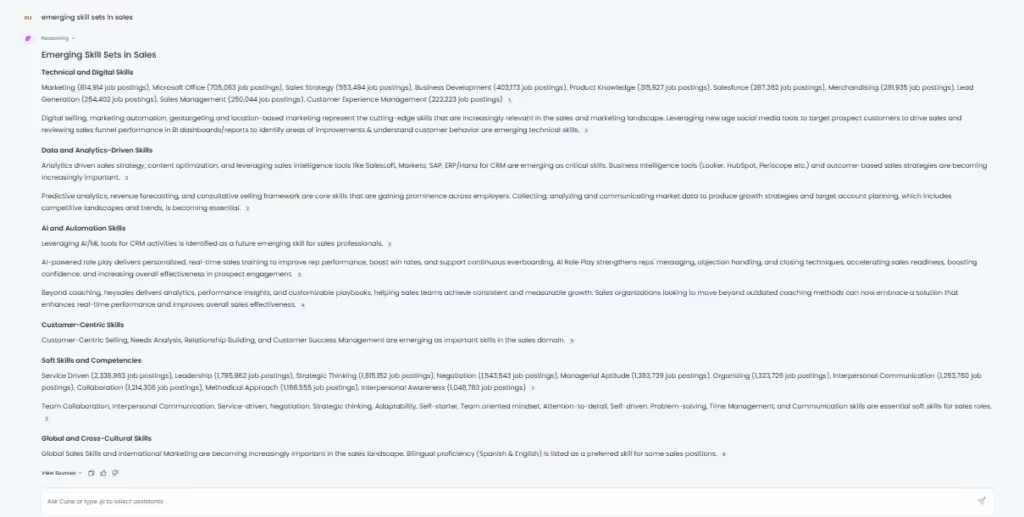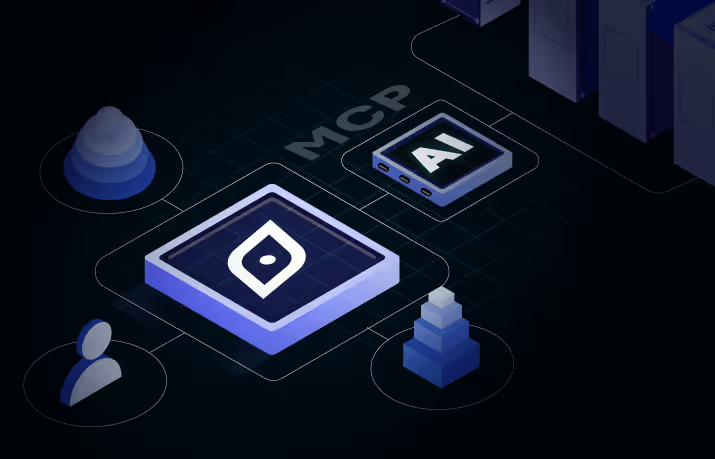The Skills-First Shift: How AI Assistants Help HR Leaders Stay Ahead of Disruption
In a labor market where AI is rewriting job descriptions faster than HR can update organizational charts, traditional workforce planning isn’t just outdated, it’s a liability. Static job titles fail to capture how skills are evolving, which is why 79% of CEOs cite a shortage of essential skills as a top concern. The core issue is structural: companies are still clinging to rigid role-based models in a world that demands agile, skills-first strategies. This is where Agentic AI Assistants come into play.
The Case for Agentic AI Assistants in a Skills-First World
As AI and technology continue to evolve, agility in workforce planning has become a strategic imperative. Agentic AI Assistants offer a transformative approach to tackle this. Unlike traditional tools that merely retrieve data, these Agentic AI assistants reason, contextualize, and adapt their insights in real time. They can coordinate multiple specialized systems, offer tailored recommendations, and help HR teams move from insight to action without delay.
By functioning as orchestrators of talent intelligence, Agentic AI Assistants bridge the gap between static data and dynamic workforce strategy. They empower HR leaders to anticipate skill shifts, align talent with evolving business goals, and make workforce decisions at the speed of change.
How AI Assistants Are Solving the Workforce Skills Gap
A leading example of this is Curie, Draup’s proprietary Agentic AI Assistant. Curie calls on a suite of domain-specific assistants to deliver contextual insights:
- Talent Intelligence for deep insights into talent supply, demand, and emerging skills
- Signals for real-time updates on layoffs, workforce shifts, and hiring trends
- Universe for peer company benchmarking and capability mapping
- Braindesk for curated industry reports, competitive intelligence, and market analysis
Together, these agents enable Curie to power truly adaptive, skills-first workforce strategies.
As AI transforms the nature of work, fixed roles are quickly losing relevance. Research suggests that 41% of jobs could be impacted by AI within five years. The implications are profound: job titles can no longer adequately reflect what people can actually do.
The core reason is that the traditional role-based hiring models, based on degrees and experience, are outdated in today’s dynamic workforce. A skills-first model prioritizes capabilities over job titles, allowing organizations to tap into a wider talent pool, reskill teams, and stay agile in the face of disruption.
Take the “Data Analyst” role, for instance. A few years ago, it revolved around spreadsheets. Today, it could require prompt engineering, data storytelling, and fluency in custom LLM tooling. A skills-first lens reveals the full picture of what modern talent looks like.
AI Assistants like Curie allow organizations to:
- Focus on core capabilities rather than outdated titles
- Identify adjacent and emerging skills to enable proactive reskilling
- Benchmark internal talent against labor market dynamics
- Build future-proof teams instead of static roles
Curie in Action: Enrich Job Descriptions with the Right Skills
A global enterprise software company planning to expand its sales team could use Curie to rethink its hiring strategy in several ways. Rather than defaulting to static roles like “Account Executive,” the company could adopt a skills-first approach—leveraging Curie to evaluate real-time market conditions. It could also use Curie to uncover emerging talent trends and identify capabilities that align with evolving sales priorities.
Here’s what they can discover:
- In the US, demand for traditional sales roles is flattening. But in APAC and Eastern Europe, skills like solution selling, virtual collaboration, and AI-powered CRM are on the rise.
- The Talent Intelligence and Universe sub-assistants revealed that Dublin and Warsaw offered large pools of tech-savvy sales talent at 30–40% lower salary benchmarks.
- The Signals sub-assistant flagged high attrition and aggressive poaching activity by competitors in cities like Austin and Chicago.
- The Braindesk sub-assistant highlighted a rising skills cluster in AI-augmented sales enablement—a capability not tied to any one role but critical for high-value deals
- Curie could also help surface emerging skill sets like buyer intent analysis and digital sales orchestration, critical for modern enterprise sales strategies.

Fig: Insights provided by Curie for the emerging skill sets in sales
The company could use these insights to shift from hiring for static job titles to building agile, skill-rich teams around core capabilities. They could launch upskilling programs in generative AI tools and redeploy existing talent into high-growth segments.
Agentic AI Assistants are redefining how HR leaders approach disruption. By combining labor market intelligence with internal skill visibility, they unlock a new level of precision and agility in workforce planning. The future of work isn’t role-based—it’s skills-first, and it’s already here.










.svg)
















.svg)





.svg)





.svg)
